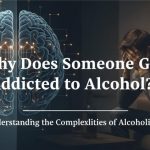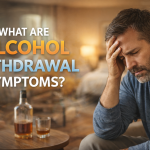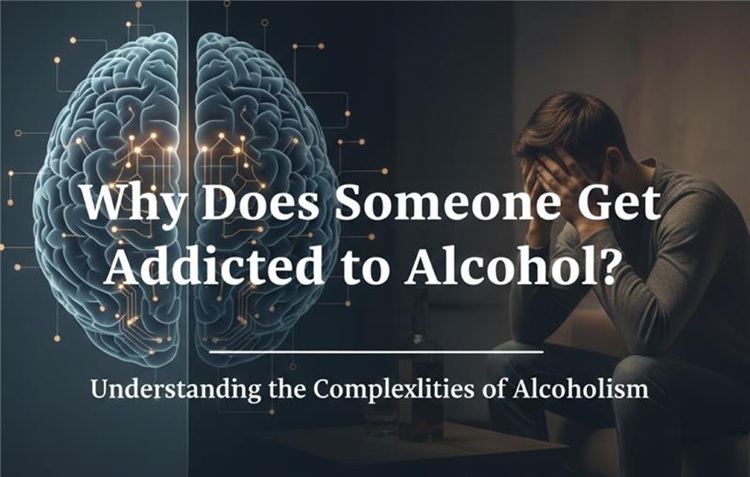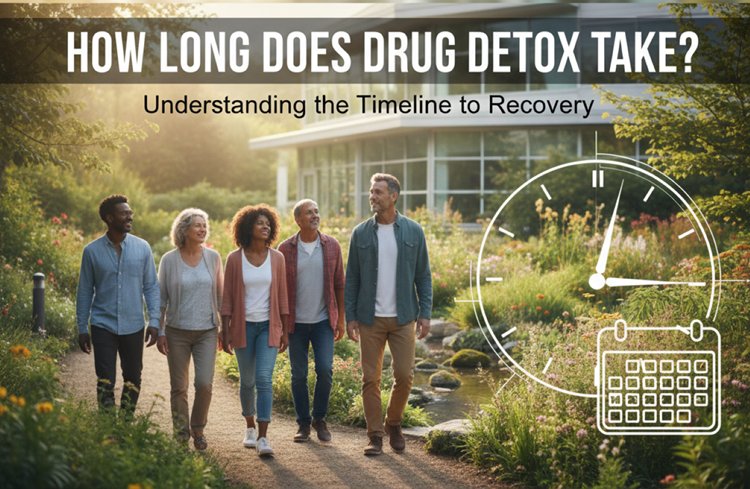Alcohol exists as a prevalent substance throughout the world because it intertwines sincerely with numerous societal customs and traditional practices of different cultures. Millions of people use alcohol as social protection, but for them alcohol turns into a serious disturbance that affects their lives
Alcohol addiction causes destructive consequences for both alcohol consumers and their families, as well as their professional life and total health status.
Seeking help from alcohol abuse addiction is vital for anyone experiencing this issue because support exists even though no one faces this issue alone. Through appropriate help systems and medical treatment solutions, recovery becomes attainable for living a healthier life free from substance use.
Understanding Alcohol Addiction
Is Alcohol Addictive?
Scientists have proven that alcohol creates a high level of addiction in people. People who use alcohol experience alterations in their reward and pleasure pathways that lead to feelings of relaxation and euphoria or lack of inhibition. Regular alcohol consumption affects brain chemical processes thus resulting in both physical and psychological addictive behavior. Regular alcohol consumption typically starts with social situations yet evolves into serious improper alcohol use that becomes difficult to stop.
The Line Between Use and Abuse
Addiction and alcohol frequently accompany each other yet people need to recognize between ordinary drinking habits and alcohol abuse issues and outright addiction cases. Drinking habits lead to harm when someone consumes alcohol through dangerous methods including binges or stress use or continues drinking even when it causes problems. A person who develops feelings of dependence on drinking alcohol because of their progressed alcohol abuse shows signs of alcohol addiction.
Signs and Symptoms of Alcohol Addiction
Alcohol addiction doesn’t look the same for everyone, but there are common signs that may indicate a problem:
- Drinking amounts or periods of alcohol consumption that exceeded personal plans
- The inability to reduce alcohol use or stop any form of drinking remains a symptom of alcohol dependence.
- The use of alcohol leads people to disregard their commitments in workplace settings and at home and in educational facilities.
- Dangerous consumption of alcohol occurs when people drive vehicles or engage in machine operation.
- Drinking leads to withdrawal symptoms that display as shaking, combined with sweating and nausea and anxiety when one stops alcohol consumption.
- A person needs increasing amounts of alcohol to reach the desired effects that each dose previously provided.
- A person who loses interest in past recreational activities
Recognizing these signs is the first step toward healing.
100% Confidential Support is Available 24/7
No matter what you’re going through, you’re not alone. Our dedicated team is here to provide a safe, judgment-free space where you can talk openly and honestly. Whether you need emotional support, resources, or just someone to listen.
We’re here for you—completely confidential and always respectful of your privacy. Call us today!
The Importance of Getting Help
Physical as well as emotional damage and social deterioration and financial problems arise when someone abuses alcohol. Following sustained alcohol consumption, multiple health issues develop, such as liver failure, alongside heart damage and reduced memory performance and depression, before resulting in death prematurely. When alcohol use occurs regularly, it results in damaged relationships while work quality decreases and feelings of personal importance weaken.
The depth of a problem stands no barrier against recovery achievements. Looking for assistance demonstrates personal strength because it represents your critical effort to regain control of your existence.
Contact Palm Coast Treatment Solutions
Battling with Drug and Alcohol Addition? Remember, you are not alone and we are here to help you!
Options for Alcohol Addiction Treatment
Acclaimed specialists have determined that individuals need different treatments for their alcohol addiction problems. The most beneficial approach to treatment exists when it accommodates each person’s individual requirements. Several proven methods exist for recovery which include the following:
1. Inpatient and Outpatient Rehab Programs
Patients in structured inpatient treatment environments can receive medical supervision during detox and therapy under one setting. The most suitable treatment choice exists for those who require comprehensive medical support because of extreme addiction or psychiatric disorders.
Outpatient care serves individuals who need to maintain their work or family commitments because it gives them schedule flexibility. During outpatient treatment patients maintain their regular duties by attending set therapy appointments along with their medical consultations.
2. Medication for Alcohol Addiction
Several FDA-approved medications for alcohol addiction can help reduce cravings and prevent relapse. These include:
- Naltrexone functions to block the pleasurable alcohol reactions experienced by users.
- The brain-restoring effects of Acamprosate help patients avoid withdrawal symptoms.
- The drug combination of disulfiram creates unfavorable bodily reactions during alcohol consumption to discourage patients from drinking.
Medication is most effective when combined with therapy and lifestyle changes.
3. Therapy and Counseling
Very successful behavioral therapies include Cognitive Behavioral Therapy (CBT) and Motivational Interviewing (MI). These treatments offer direct strategies for treating alcohol abuse-related behaviors and thinking patterns. Healing alongside accountability comes from the combination of group therapy with family therapy approaches.
4. Hypnosis for Alcohol Addiction
Hypnosis for alcohol addiction has emerged as a popular and alternative method during the past few years. Hypnotherapy enables practitioners to reach the subconscious mental state which allows patients to create new potential thinking about alcohol. Hypnotherapy functions as a beneficial complementary technique for addiction treatment alongside standard medical interventions, even though it alone does not provide a cure.
Overcome Addiction with Palm Coast Treatment Solutions.
Book an appointment.
Finding the Right Support
Finding suitable substance abuse treatment options poses a major challenge to people who are facing an emergency crisis. Professional assistance is crucial because mental health specialists understand how individuals can successfully overcome alcohol addiction. The best likelihood of enduring sobriety emerges from recovery plans that are specifically designed for each individual, whether through medical detoxification or therapy or hypnotherapy treatments.
What to Expect in Recovery
The recovery process includes steady progress, although it follows a non-linear path with regular ups and downs. The early recovery period includes necessary detox procedures that medical experts define as physically and emotionally complex. Safety and comfort requirements need medical professional support throughout this stage.
As the detox phase ends, long-term treatment focuses on:
- Building coping mechanisms
- Addressing mental health issues
- Reconnecting with loved ones
- Creating a stable, alcohol-free lifestyle
People discover power in peer support groups including Alcoholics Anonymous (AA) and SMART Recovery, because members share similar challenges.
Overcome Addiction with Palm Coast Treatment Solutions.
Book an appointment.
Tips for Staying Sober
- Avoid Triggers: Avoid contact with people and places that pressurize you to drink.
- Build a support Network: Having recovery-supporting individuals nearby will be crucial for your healing process.
- Create a new Routine: Replace your free time by engaging in enjoyable pursuits that do not include alcohol.
- Set Goals: Your sense of purpose directs you towards focusing on your objectives.
- Practice Self-care: Achieve good sleep quality while consuming nutritious meals and practicing routine physical movement.

Take the First Step Today
Now stands as the ideal opportunity to get assistance for anyone who faces alcohol abuse addiction, either themselves or through a family member. As a part of Palm Coast Treatment Solutions we deliver specific alcohol addiction treatment programs designed to suit individual requirements. The professional staff at our facility will support your recovery journey by leading you through detoxification as well as offering extended support services. Schedule an immediate call with our understanding treatment specialist by dialing (386) 284-4151. The path to a healthier existence without alcohol consumption begins at this moment.






















